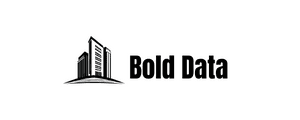Choosing the best database for your business or organization can be a daunting task, given the variety of options available in the market. Different databases offer varying features, capabilities. And pricing models. which can make it challenging to determine which one is the right fit for your specific needs.
On several factors, including the size of your organization, the nature of your data, your performance requirements, and your budget. Below are some of the most popular database types and their key features and benefits:
What Database Does Sas Use
- Relational databases – Relational databases are the most commonly. Used type of database and are based on the relational model. They use tables to store data, with each table containing columns and rows. Relational databases are ideal for managing structured. Data and offer strong data integrity and consistency. Examples of relational databases include Oracle, MySQL, and Microsoft SQL Server.
- NoSQL databases – NoSQL databases are design to handle unstructured or semi-structured Data and offer flexible schema designs. Examples of NoSQL databases include MongoDB, Cassandra, and Couchbase.
- Cloud databases – Cloud databases are databases Special Database that are hosted. in the cloud and can be accessed from. AnywhereWith an internet connection. They offer high scalability, reliability, and availability and are ideal for businesses that require a flexible and cost-effective solution. Examples of cloud databases include Amazon Web Services (AWS) RDS, Microsoft Azure SQL Database, and Google Cloud SQL.
Who Is Database Search
- Complex relationships between data points. They are ideal for managing large amounts of data that require complex analysis and can provide valuable insights into network and social mia data. Examples of graph databases include Neo4j, OrientDB, and ArangoDB.
- They are ideal for managing high-performance applications that require fast response times and low latency. Examples of in-memory databases include SAP HANA, Oracle TimesTen, and Redis.
To consider the security and compliance. Requirements Of your organization.
The best database for your business will depend on your Bold Data specific needs, requirements, and budget. By considering the above factors, you can make an informed decision and select a database that will meet your organization’s needs and help you achieve your goals.







